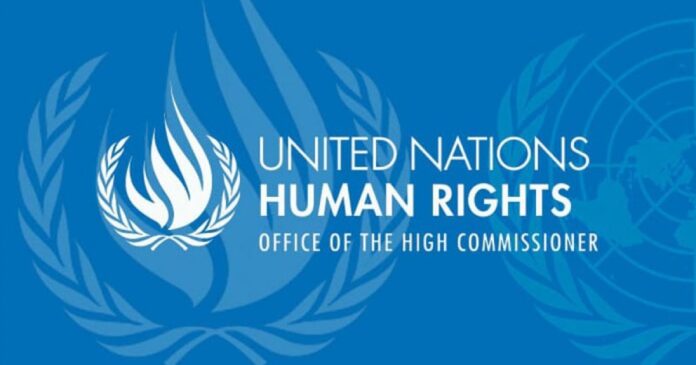The interim government is hesitant about opening the office of the United Nations High Commission in Bangladesh. During the visit of United Nations High Commissioner for Human Rights Volker Turk to Dhaka on September 29, social welfare advisor Sharmin S. Murshid told reporters that the decision to open the office has been made and the office will be opened soon. The next day, on September 30, the foreign affairs adviser told reporters that no decision had been taken on opening the office and it was being examined. According to experts, quick decisions on politically sensitive issues such as opening of offices in Bangladesh can have a negative impact on the society.
After his recent visit to Dhaka, Volker Turk expressed his thoughts on Bangladesh in a speech. He felt that human rights and social justice were the underlying demands of the anti-discrimination movement. Bangladesh should come out of the circle of revenge and punishment. At the same time, corruption and major human rights violations should be avoided. For this purpose, he promised the full support of the United Nations Human Rights Office. He raised the issue of finalizing procedures for strengthening presence of his office. Increased presence means the new office can assist in investigating human rights violations in July-August as well as reforming legal, institutional, economic, social and other sectors. Besides, he expressed hope that he will work for social reconciliation and healing after the movement.
It can be assumed that the government has an almost final position on the opening of offices. Its mandate is very large and it can influence all aspects of Bangladesh, including social and political.
In this regard, the former ambassador of Bangladesh in Geneva. Sufiur Rahman said, 'The scope of the concept of human rights in a society depends on various factors including social maturity, good education. How a state's legal framework is practiced should depend on political consensus. It is an internal and exclusive matter of the state.'
As an example, he said, 'In many countries of the developed world, the death penalty has been abolished to protect human rights. If the practice of death penalty is abolished in Bangladesh on the pretext of human rights, what kind of effect it will have, must be taken into consideration.
It should be noted that Volker Turk discussed the abolition of death penalty during his visit to Dhaka.
Regarding social accommodation and relief. Sufiur Rahman said, 'What will happen to the future of the political party of the fallen government and its collaborators in Bangladesh and how much role will they have, that is completely an internal matter of Bangladesh.'
About the establishment of human rights, a former diplomat, who did not wish to be named, said, 'The United Nations wants to establish human rights according to international standards in every country. But the capacities and characteristics of every society are not the same and without taking that into account the UN pushes for the full implementation of the human rights system.'
He said about Volker Turk's talk of abolishing the death penalty on the pretext of human rights, 'They openly talk about the abolition of the death penalty. But in discussions at various UN forums, they always say that homosexuality should not be considered a crime or that the UN supports equal rights for men and women in all cases.'
Note that homosexuality is a criminal offense under the laws of Bangladesh. On the other hand, the rights of men and women are not equal in the distribution of inheritance property.
Reform of the Penal Code
Bangladesh's CRPC (Criminal Penal Code) provides for the death penalty and homosexuality is also a crime. But the United Nations considers both of these to be human rights violations and has pressed for changes in countries that have such 'violating human rights' laws.
Sufiur Rahman, currently a senior fellow of North South University, said, 'The philosophy and method that a society chooses to deal with problems, its penal code is like that. If society is conservative, it will have remedies to discourage things like homosexuality.'
Regarding the death penalty, he said, 'Trafficking in women and children is a big problem in countries like Bangladesh. Prostitution carries the death penalty for trafficking in women and children. Now if the death penalty is removed as per the recommendation of the United Nations, there will be a danger that the level of women and child trafficking will increase.'
Assistance from Geneva
The Office of the United Nations High Commission on Human Rights recommended amendments to the Digital Security Act in Bangladesh. They made that recommendation from Geneva.
In this regard, a former diplomat said, 'If the United Nations High Commission for Human Rights wants to help us, they can do it from Geneva. For this there is no need to open an office in Bangladesh.
Note that the headquarters of the United Nations High Commission for Human Rights is in Geneva.
How much is the society prepared?
There are questions about how Bangladeshi society is ready to establish human rights according to international standards. In many societies around the world, no one honks unless absolutely necessary. But in Bangladesh, the horn is played as needed; Which is violation of human rights through noise pollution.
In this regard, Sufiur Rahman said, 'There can be a debate among the larger population about how much society is ready to establish human rights according to international standards. A small group has no chance of implementing an agenda without internal discussion and consensus.'
If Bangladeshi society is ready to abolish the death penalty, whether it will accept homosexuality or equal rights of men and women in inheritance – giving the UN unfettered space to act without addressing many other such issues could create controversy and division in the society. He said.
However, he said, 'United Nations assistance should be welcomed on the basis of consensus.'

